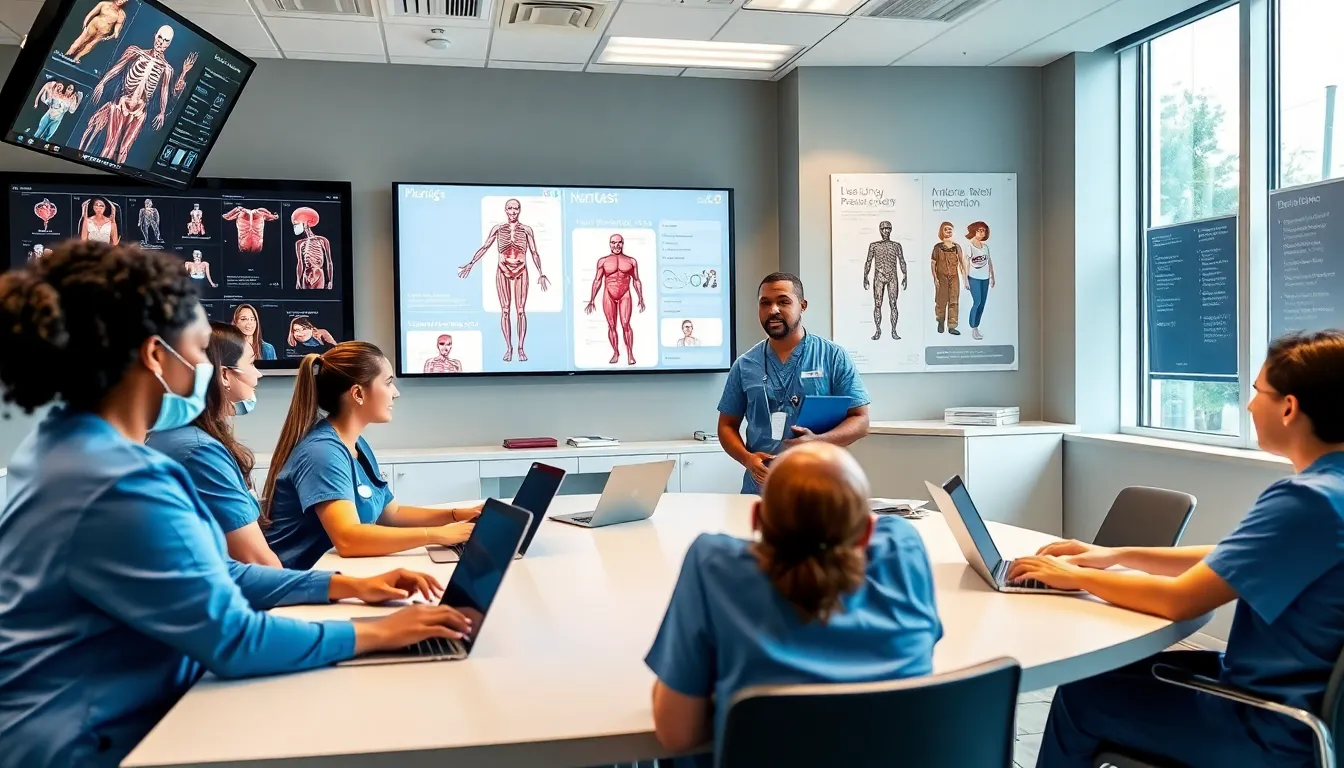In an ever-changing healthcare environment, nurse education today is not just about hitting the books and memorizing medical jargon. It’s a dynamic realm where innovation meets tradition, and where tomorrow’s nurses are being trained to tackle modern challenges. Picture a classroom filled with aspiring nurses, some maneuvering advanced simulators while others engage online, it’s a whole new world out there. So, buckle up as we jump into the multifaceted evolution of nurse education, with a sprinkle of humor and a lot of insightful information.
Table of Contents
ToggleThe Evolution of Nurse Education

Historical Context
Nursing education has a rich history that dates back centuries. Initially, there were no formal training programs: nursing was often learned through apprenticeships and on-the-job experience. Fast forward to the 19th century, and Florence Nightingale’s efforts revolutionized nursing education, emphasizing sanitary practices and patient care. Institutions began emerging across the globe, aiming to professionalize nursing and provide in-depth training.
Changes in Curriculum Over the Years
Over the decades, the nursing curriculum has transformed significantly. While early programs focused predominantly on practical skills, today’s education integrates a comprehensive approach that includes anatomy, psychology, and even ethics. Recent developments have seen a stronger emphasis on evidence-based practices and critical thinking skills. The introduction of specialized tracks allows nurses to pursue areas of interest, broadening their expertise and improving patient outcomes.
The Impact of Technology on Learning
Simulation and Practical Training
Hands-on experience has always been a cornerstone of nursing education. But, with the rise of technology, simulation training has become a game-changer. Students can now practice procedures in lifelike scenarios without the pressure of real-life consequences. From virtual patient interactions to advanced mannequins that simulate various conditions, the incorporation of these tools prepares nurses for the complexities they will face in the field.
Online Learning Platforms
Online learning platforms have also democratized education. Aspiring nurses can now access quality educational resources from anywhere. This flexibility is particularly beneficial for those balancing jobs and family responsibilities. With a mixture of live lectures, recorded sessions, and interactive discussions, online learning enhances accessibility while fostering a diverse learning community.
Key Competencies Required for Modern Nurses
Clinical Skills and Patient Care
Today’s nurses must be proficient in a broad range of clinical skills. Mastery of technical procedures combined with a solid foundation of medical knowledge is essential. They must also remain adaptable, as medical practices continually evolve. As they enter the workforce, new tools and treatments emerge regularly, ensuring that lifelong learning becomes their new mantra.
Communication and Interpersonal Skills
But, nursing isn’t just about clinical skills. Communication and interpersonal skills are equally vital. Nurses often act as the bridge between patients and the healthcare system, translating complex medical terms into understandable language. Empathy and the ability to listen actively can dramatically impact patient experiences and outcomes.
Cultural Competence and Ethical Considerations
In today’s diverse society, cultural competence is non-negotiable. Nurses encounter patients from various backgrounds, and understanding cultural beliefs and practices can enhance care delivery. Ethical considerations also play a critical role: nurses must navigate complex decisions that uphold patient dignity while adhering to legal and professional standards. Training programs are increasingly integrating cultural competency and ethics into their curriculums, ensuring that future nurses are equipped to handle these challenges.
Challenges in Nurse Education
Funding and Resource Allocation
Even though advancements, nurse education faces significant challenges. Funding often falls short, leading to resource allocation issues, outdated equipment, and insufficient materials. This disparity can impact the quality of education that students receive, eventually affecting the healthcare workforce. Advocacy for increased funding and resources continues to be a pressing need in many regions.
Staffing and Faculty Shortages
Also, staffing and faculty shortages plague nursing education systems. The demand for nurses frequently outpaces the supply of qualified educators, resulting in overburdened faculty members and limited student placements. This not only hinders the growth of the nursing workforce but can also diminish the quality of education offered.
Future Trends in Nurse Education
Interdisciplinary Learning Experiences
The future of nurse education looks bright with emerging trends focusing on interdisciplinary learning experiences. Collaborative education with other healthcare disciplines promotes teamwork and understanding. Nursing students will find themselves learning alongside medical, pharmacy, and allied health students, simulating real-world scenarios that require collaboration.
Focus on Lifelong Learning
Equally, a focus on lifelong learning is set to become the norm. As healthcare evolves, continuing education will ensure that nurses remain current with best practices and new technologies. Professional development courses and workshops will become integral parts of a nurse’s career, reinforcing the idea that education does not end at graduation.


